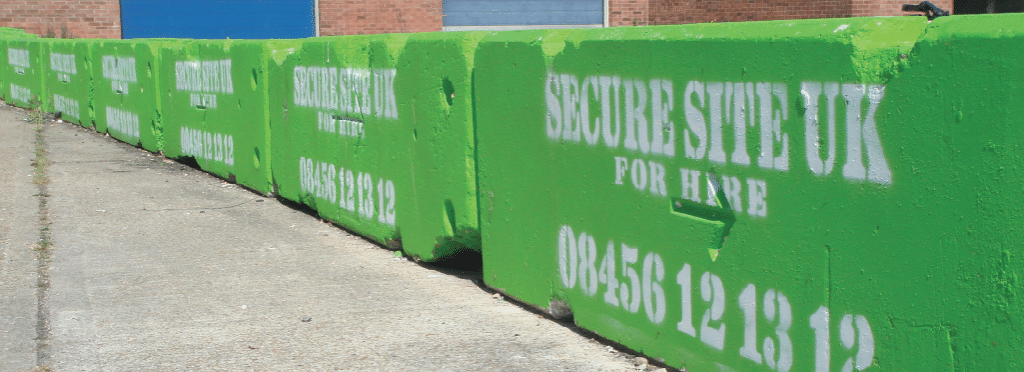According to the most recent Government figures released in November 2020, 268,385 homes in England had been empty for at least six months. Source.
If you own or manage a property that has recently become vacant, you will have undoubtedly considered your vacant property security options – in order to protect your assets.
Yet, we often find that an underused – or poorly utilised – empty property security measure is the concrete barrier. When used effectively, you can control unauthorised access (people and vehicular), deter squatters and stop your property from becoming a fly tipping target, amongst other benefits.
If you haven’t considered concrete barriers for your vacant property – or you’re not using them correctly – this could be the one mistake you’re making, risking your property’s overall security.
Read on to find out more…
Different Types of Barriers For Your Empty Property
Before we delve into the benefits of concrete barriers for the security of your empty property, it’s worth knowing the different types of barriers available.
Certain barriers will be better suited to certain applications, and they will normally be concrete or plastic.
Concrete barriers include TVCBs (Temporary Vertical Concrete Barriers), Lego Blocks, Jersey barriers or other modified precast concrete barriers. Due to their strength and durability, these types of barriers are better suited to construction sites, residential areas and commercial spaces.
Plastic barriers, on the other hand, are better suited for light-duty service and will be used as an efficient method during roadside maintenance, for example. Generally speaking, plastic barriers will either be water-filled or sand-filled.
Unquestionably, concrete barriers will be the best option for protecting a vacant property.

Providing Protection Against Unauthorised Access With Concrete Barriers
Whilst ‘boarding up’ your windows and doors with steel screens is one of the most effective ways of preventing access to your property, it won’t do much to protect the land surrounding the property.
Parking spaces and garden areas will be attractive spots for those wishing to park their vehicles or ‘make use’ of your land for a variety of purposes.
3 metre wide, 2.5 tonne concrete blocks installed across all entrance points to your property will effectively cut this behaviour off at the source, avoiding the risk of you, the property owner, having to pay for costly waste disposal services.
Preventing Fly-Tipping
Local authorities in England dealt with just under 1 million (976,000) fly-tipping incidents in 2019/2020, an increase of 2% from the 957,000 reported in 2018/19, the government reported.
Whilst these statistics don’t just reflect the goings-on around vacant premises, they do present a stark reminder that fly-tipping continues to be a problem in England.
So, if you don’t want to return to a property that’s been turned into a dumping ground, it’s highly advisable that you prevent fly-tipping by securing all your property’s entrances with concrete barriers.
Preventing Illegal Traveller Encampments
Unauthorised traveller encampments can become a real issue if you own a portfolio of properties or land that has become vacant.
When an ‘open’ site becomes known, news quickly spreads – and before you know it – caravans will appear.
However, some well-placed concrete blocks will stop this illegal behaviour in its tracks, saving you unwanted grief.
Whilst living a nomadic lifestyle is in no way illegal, when it involves trespassing on someone’s property, it is.
Conclusion – Talk To Us About Your Vacant Property Security
In much the same way you’d select a guarding service or CCTV, the number of barriers will be dependent on your unique requirements. The best way to understand this would be via a site assessment, which will confirm the best security solutions to meet your needs.
Do you have a vacant property that would benefit from the use of concrete barriers? Don’t hesitate to speak to an expert today.









